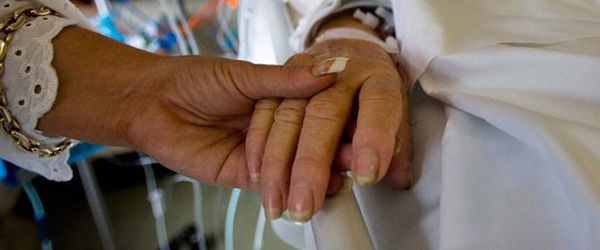On June 21, the eve of the memorial of Ss. John Fisher and Thomas More, we begin a period of prayer, sacrifice and public witness for the cause of religious liberty. I join my brothers in the U.S. Conference of Catholic Bishops in calling for this “Fortnight for Freedom,” which will run until July 4, the memorial of our country’s independence. Religious liberty is a precious freedom. Sadly, it’s also a rare freedom. Three out of four people worldwide live in a country where the government doesn’t protect their right to worship and serve the God they believe in. Christians are by far the world’s most persecuted people. In some places, they risk their lives every time they go to Mass. So in this fortnight, let’s remember to pray for our Catholic brothers and sisters in places like Iraq, Pakistan, Vietnam, Nigeria, China and Cuba. This global context puts our Church’s current conflict with the United States government in perspective. But it’s important to remember: Just because believers here aren’t punished with violence and are free to go to church, that doesn’t mean freedom of religion isn’t in jeopardy. For our country’s founders — and for every American generation until now — freedom of religion has meant much more than the freedom to worship. Freedom of religion has always meant the freedom to establish institutions to help us live out our faith and carry out our religious duties. Freedom of religion has always meant the freedom to express our faith and values in political debates and the freedom to try to persuade others to share our convictions. In recent years, this sense of religious liberty, conscience protection and religion’s public role have been eroding — under constant pressure from anti-Christian and secularizing elements in American society. Government, at all levels, is increasingly pushing Church agencies to go against their beliefs. Christian faith and values are more and more portrayed — in the media, in the courts, even in comments from high government officials — as a form of prejudice. In our diverse, pluralistic society, it seems sometimes that Christianity is becoming the one lifestyle that can’t be tolerated to have a role in our public life. These same secularizing and anti-Christian pressures are at work in our current conflicts. No one can credibly claim that this conflict with the government is about access to abortion and birth control. Because unfortunately, both are widely available and affordable to anyone who wants them in this country, often subsidized by federal and state governments. We need to see this clearly: Our present conflict is part of a larger cultural struggle to redefine America as a purely secular society — in which there is no public role for religious institutions except if they serve the government’s purposes.
Catholics don’t serve the poor to please our government. We serve the poor because we are compelled by the love of Christ.
This struggle has been going on for a long time. What’s new is that our government — which has the duty to protect religious liberty — has now taken sides against the liberty of the Church. Our government is now using the full weight of its powers to try to dictate the terms under which the Church and Catholic believers will be permitted to participate in our society. For perhaps the first time in our history, our government is acting as if human rights don’t come from the hand of God, but are instead “benefits” that government can give, define and take away. I’ve had well-meaning people ask me: Why is this so important? Why can’t the Church just compromise and provide birth-control insurance to our employees? They tell me the greater good would be advanced if the Church is able to keep serving the poor in her hospitals, schools and charities. But Catholics don’t serve the poor to please our government. We serve the poor because we are compelled by the love of Christ. This same love for Christ compels us to bear witness that life, marriage and family are sacred and that preventing children from being born is immoral. The “compromise” we’re being offered is to stop loving Christ and to stop being Christians. It’s the temptation to serve government and not God. So what do we do? We do what the Church and Christians have always done. We love our enemies and pray for those who persecute us. We live our faith with the freedom of the children of God, with a love that heals and inspires others. We tell the world the good news that God is alive and that he calls us all to a great destiny of love. We work to create a society of mutual sharing, reconciliation and love — rooted in the sanctity of the human person and family. So let’s pray for one another and for our country this week. And may Immaculate Mary, the patroness of the United States, give us the courage to defend the liberty of the Church and our freedom of conscience. Follow Archbishop Gomez at: www.facebook.com/ArchbishopGomez.

